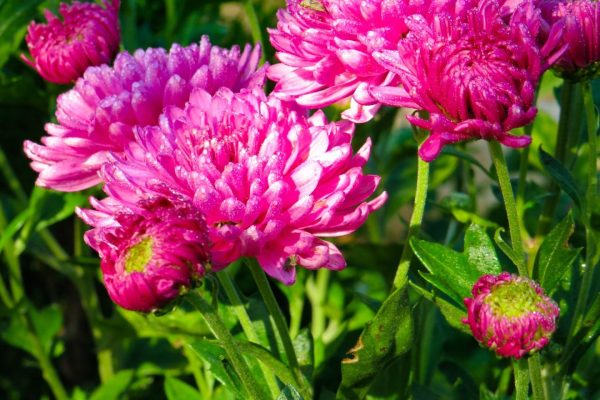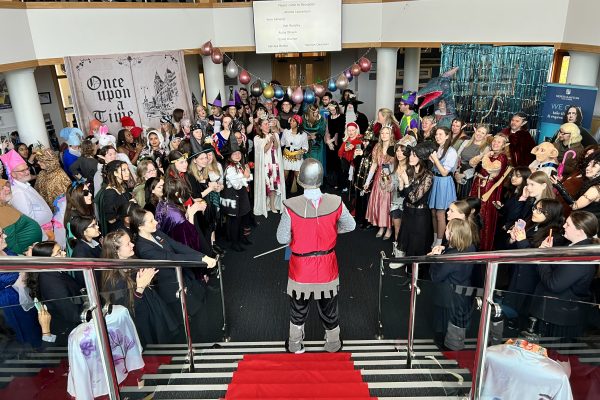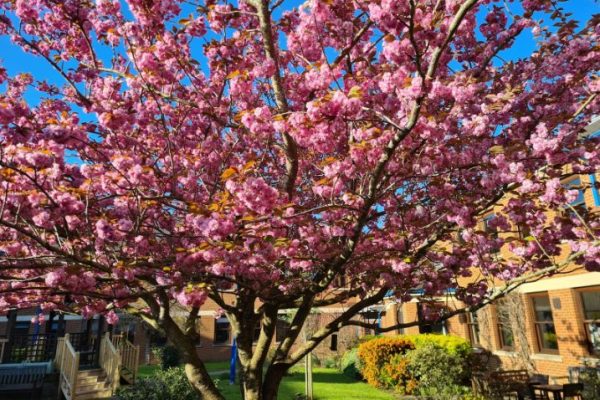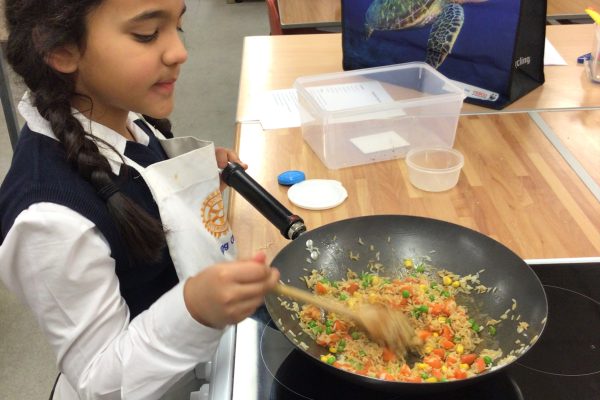Do Something Every Day that Scares You: Embracing Growth and Overcoming Fear
Eleanor Roosevelt once famously said, ‘Do one thing every day that scares you.’ These words carry a profound truth about the human experience and the potential for personal growth. While fear often holds us back, stepping out of our comfort zones and embracing the unknown can lead to extraordinary accomplishments on an individual and personal level, and provide us with a lifetime of fulfilment.
Our comfort zones are important and by definition, when we are in them we feel comfortable and secure. While they provide a sense of familiarity and stability, they can also serve as a prison, restricting our growth and limiting our potential. I’m sure that by this point in the academic year, you will be familiar with Dr Lee’s motto of the year, ‘Be 10% braver’. Whilst phrases such as this may be interpreted as trite by some, in reality their sentiment has enormous value. By consciously putting ourselves out there and being open to challenge, we can push our own boundaries and discover hidden talents or abilities that we did not think were within our capabilities. This gradual expansion opens doors to new opportunities and develops an inner confidence to keep trying new things.
At this point, I should point out that I do believe Eleanor Roosevelt intended her statement to be taken with a pinch of salt. Fear and anxieties have played and continue to play an important role in evolution and in ensuring that we keep ourselves safe, and I am certainly not suggesting that we should be putting ourselves into perilous situations to force self improvement. We must recognise the difference between recklessness and bravery. They are not the same. It is also important to note that bravery, in every form, is subjective and can vary enormously from one person to another. What one individual considers to be a challenge, may seem easy for someone else. We, therefore, do not all need to throw ourselves out of aeroplanes or take up other high adrenaline sports to develop bravery and challenge ourselves. Bravery is deeply rooted in our personal values and principles and each of us must decide where to draw the line. I also think that every day might be a bit much. Some days I relish having very little in the way of challenge and an opportunity to relax and unwind is just as important as those motivating elements that help us to progress.
That said, this is all about getting the right balance. One viewpoint may be that fear is a powerful emotion which can hinder our progress and hold us back from pursuing our goals. When confronted with fears, if we can be brave and face them head on, we can learn resilience and gain a sense of empowerment. Each time we step into the unknown and try something new, we build courage and increase our confidence to face new challenges further down the track.
Engaging with situations that challenge us regularly, cultivate resilience and adaptability. By willingly engaging in these experiences, we become more adept at handling unexpected obstacles that come our way. Here at the High School, one of our core values is ‘Risk Taking’. By this, we mean educational risk taking rather than anything more sinister. Providing our students with opportunities to push their limits and explore the unknown in a safe environment, provides them with the skills they will need to venture forth into the unknown of the wider world. This practice also allows our students to develop a mindset that embraces change and see setbacks as opportunities to learn and grow. Over time, we are able to better navigate life’s challenges and become more capable of thriving in a dynamic world. If we allow routine and familiarity to be our only form of functioning, we may become complacent and overlook the opportunities in front of us. We are also significantly less likely to be able to cope when a curve ball is thrown our way. Exploring uncharted territories can be daunting, and even scary, but the possibilities that doing so can unlock, may allow us to tap into hidden potential that may otherwise remain dormant and undiscovered.
So why bring this up now, right at the end of year when things are winding down and the season for academic challenge draws to a close until September? The reason I am addressing this now is because the holidays provide an excellent opportunity for students to challenge themselves and engage in activities that foster personal growth and development. I have taken the liberty of suggesting a few potential challenges that students may like to set themselves over the next 2 months, and you as parents may well wish to join in:
- Engage in volunteer work – volunteering not only helps others and is a fabulous thing to do, but it also helps us to gain valuable practical skills as well as develop empathy and compassion. Whether it is serving meals at a soup kitchen, organising charitable giving or cleaning up your local environment, volunteering can serve as a really meaningful challenge.
- Learn a new hobby – take up a new sport, learn a musical instrument or explore some creative writing. Whatever skills you develop now can be put to the test from September when you will have a chance to show off these new skills in school.
- Engage in independent research – you may choose to learn about something new by engaging in some research. Those students in the older year groups may well be looking towards starting or completing an Extended Project Qualification (EPQ) and some research can really help to get the ball rolling, or simply offer you a new perspective on some new knowledge.
- Take an online course – the power of the internet gives us access to vast quantities of information at the click of a button. Some of the more useful information can be found via online learning opportunities. MOOCs are a great way to spend some time learning something new.
- Engage in physical challenge – this might include trying something new, or progressing with something you already do. Challenge does not have to always be an addition, it could simply be to dedicate some time to practising something you are already doing. However, the summer holidays give us lots of time to explore our options and perhaps take on something a little different to the norm.
- Practise mindfulness – mindfulness and meditation can help us become more self aware. They can also reduce stress, improve focus and develop concentration. There are lots of guided meditation apps that you can download and use for free, as well as a range of online resources. Establishing a daily mindfulness routine over the holidays is a great way to rest and recharge and foster healthy habits for a fresh start back in September. Taking time for yourself is a vital part of positive personal growth.
- Read more – this has been a personal challenge for me this year. I am not great at enjoying reading and tend to see it as a bit of a chore, or an activity to be undertaken only on a sun lounger. However, I have forced myself to read for pleasure more this year and can honestly say that it has made a positive difference to me. I am actually enjoying it and would go as far as to say that I have firmly cemented consuming a good book into my daily routine.
- Get creative – this last one covers so many possibilities that it is hard to imagine that we couldn’t all have a go at this. From painting, to baking to writing and more, getting creative is a fantastic way to challenge ourselves and see what we are capable of!
If you are attempting to set challenges for yourself over the summer, try to set specific and achievable goals. Be ambitious and push yourself, but don’t overdo it and don’t be too hard on yourself if you don’t quite achieve what you set out to. Any and all progress should be celebrated. Setting goals and working towards them can also give us a sense of pride and help us to develop discipline and perseverance. Remember, the summer holiday should also include time for relaxation, rejuvenation and spending quality time with family and friends where possible. It has been an exceptionally busy year for everyone and we all deserve the break. I have been immensely proud of the achievements that we have accomplished as a community, but also of the individual achievements of students and staff, no matter the size or significance. Celebrating every win is one of the best parts of my job and I look forward to celebrating these wins formally on Speech Day in the last week of term. I hope many of you will join me on the 12th July to celebrate and to look to the future of our students as they continue on their journey of self discovery.
Bravery and facing challenges come in many forms, from taking part in a new sport for sports day, to answering a question in class when you are not fully sure of the correct answer. Taking that risk can pay off in a positive way, regardless of the actual outcome. If the answer you volunteer is wrong, you have still learnt something, and being wrong wasn’t all that bad anyway. This week the students, and staff, involved in the Wizard of Oz have been brave. They have stood on stage in front of an audience and put themselves out there. The year 11’s have been brave, facing the horrors of Alton Towers’ most ferocious roller coasters, while I and my fellow colleagues on that trip sat on a bench, not so bravely, with a coffee! Next week, year 7 and year 9 will be brave, engaging in a range of physical activities, possibly for the first time, or staying away from home and the familiarity of their normal routine. Facing these challenges, head on, will continue to help them develop resilience and perseverance for the next adventure or challenge.
So, embracing Eleanor Roosevelt’s advice to do something every day that scares you,. Or at least challenges you, is a powerful approach to personal growth. By considering stepping outside of our comfort zones, we confront our fears, cultivate resilience and tap into our hidden potential. The practice of facing our fears daily becomes a transformative journey, empowering us to opus past limitations and celebrate our achievements. Whilst I sincerely hope that my students do not experience genuine fear too frequently, I am in the lucky position of being able to witness bravery on a daily basis. I wish you all a lovely final fortnight of the school year, and a really wonderful Summer Holiday when it arrives, and I can’t wait to hear about all the adventures and challenges that our students have been involved with when we return to school in September.
Mrs Kneen
Deputy Head Pastoral








